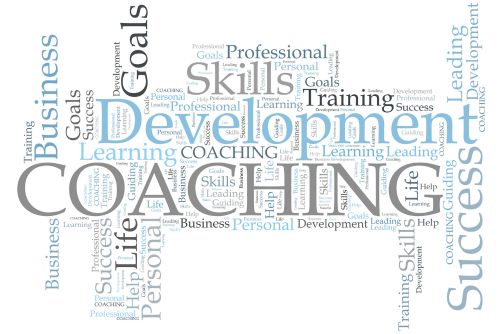
In recent years, more and more people have turned to life coaches for guidance and support in achieving their personal and professional goals. Whether you're seeking clarity in life or a new direction for your career, a life coach can provide valuable insights and help you navigate through life's challenges. But what kind of person makes a good life coach? In this blog, we will explore the key traits and essential skills that make an effective life coach. We will also discuss the challenges that life coaches face and answer some frequently asked questions about the profession.
Becoming a life coach Dubai is not just about obtaining a certification or completing a training program. It requires a unique combination of personal qualities, skills, and a genuine passion for helping others. A good life coach is someone who is empathetic, passionate, ethical, and a lifelong learner. They are excellent communicators, adaptable and flexible, and have a solutions-focused mindset. These qualities and skills enable them to effectively support and guide their clients on their personal development journey.
To be an effective life coach, certain key traits are essential. Firstly, an effective life coach is an empathetic listener. They possess the ability to actively listen and understand their clients' emotions, creating a safe space for them to express themselves. Secondly, a great life coach is a passionate motivator. They have a genuine desire to help others and are dedicated to their clients' personal growth and success. Thirdly, an effective life coach is ethical and honest. They maintain professional boundaries, act with integrity, and prioritize their clients' well-being. Finally, an effective life coach is a lifelong learner, committed to their own personal and professional development. They continuously seek opportunities to grow and improve their coaching skills.
One of the key traits of an effective life coach is the ability to be an empathetic listener. Active listening is a skill that allows the life coach to truly understand their clients' emotions, thoughts, and experiences. By actively listening, the life coach creates a safe and supportive space for the client to express themselves freely. They pay attention to both verbal and non-verbal cues, allowing them to gain a deeper understanding of the client's needs and challenges. By being empathetic, the life coach is able to connect with their clients on a deeper level and provide the support and guidance needed for personal growth and development. Empathetic listening is essential for building trust and a strong coaching relationship with the client.
Passion is a key trait of an effective life coach. A passionate life coach is someone who genuinely cares about their clients' personal growth and success. They have a strong desire to motivate and inspire others to reach their full potential. A passionate life coach is committed to helping their clients achieve their goals and overcome any obstacles that may come their way. They bring an infectious energy and enthusiasm to their coaching sessions, which motivates their clients to take action and make positive changes in their lives. By being a passionate motivator, the life coach creates a supportive and uplifting environment that encourages the client to believe in themselves and their abilities. This passion drives the life coach to go above and beyond for their clients, ensuring their success and personal growth.
Ethics and honesty are crucial traits for a good life coach. An ethical life coach operates with integrity, adhering to professional standards and guidelines. They maintain confidentiality and respect client privacy, creating a safe and trustworthy environment. Honesty is also important as it builds trust and credibility with clients. A good life coach is honest with their clients about their capabilities, limitations, and the coaching process. They set clear expectations and boundaries, ensuring that both the coach and client are on the same page. By being ethical and honest, the life coach establishes a strong foundation for the coaching relationship, allowing for open and transparent communication. This ethical approach fosters a sense of trust and safety, enabling the client to fully engage in the coaching process and achieve their desired outcomes.
A good life coach is a lifelong learner. They have a passion for personal and professional development and are committed to continuously learning and growing. Lifelong learning is essential because it allows the life coach to stay updated with the latest coaching techniques, tools, and industry trends. It enables them to provide the best support and guidance to their clients. A lifelong learner seeks out opportunities for personal growth, whether through attending workshops, seminars, or obtaining advanced certifications. They are dedicated to improving their coaching skills and expanding their knowledge base. By being a lifelong learner, the life coach demonstrates a commitment to excellence and ensures that they are equipped to meet the ever-changing needs and challenges of their clients.
Effective communication is a key skill for a good Dubai life coach. An excellent communicator is able to express their thoughts and ideas clearly and concisely. They have strong listening skills and are able to understand and interpret their clients' messages effectively. They also pay attention to non-verbal cues and body language, allowing them to gain a deeper understanding of their clients' emotions and experiences. An excellent communicator is able to ask powerful questions that provoke thought and encourage self-reflection. They are skilled at providing feedback and guidance in a constructive and supportive manner. By being an excellent communicator, the life coach is able to establish a strong connection with their clients and create a safe and open space for meaningful conversations and growth.
A good life coach is solutions-focused. They have the ability to help their clients identify and overcome obstacles and create actionable plans to achieve their goals. They have a positive and optimistic mindset, focusing on possibilities and solutions rather than dwelling on problems. A solutions-focused life coach encourages their clients to think creatively and come up with innovative solutions to their challenges. They help clients set clear and achievable goals and provide guidance and support throughout the goal achievement process. By being solutions-focused, the life coach empowers their clients to take ownership of their lives and make positive changes. They provide the tools and strategies needed to overcome obstacles, stay motivated, and achieve success.
Adaptability and flexibility are important qualities for a good life coach. Life is full of unexpected challenges and changes, and a life coach must be able to adapt and adjust their approach to meet the unique needs of each client. They are open to new ideas and perspectives, willing to explore different strategies and techniques to support their clients. A flexible life coach understands that each client is unique and may require different approaches or interventions. They are able to customize their coaching style to meet the specific needs and preferences of their clients. By being adaptable and flexible, the life coach creates a dynamic and responsive coaching environment, ensuring that their clients receive the most effective support and guidance.

In addition to the key traits, there are essential skills that contribute to life coaching success. These skills are crucial for building rapport with clients, setting and achieving goals, implementing effective coaching strategies, and managing client progress and accountability. By mastering these skills, a life coach can create a supportive and impactful coaching practice, helping their clients achieve personal and professional growth and success. These skills include building rapport with clients, setting and achieving goals, implementing effective coaching strategies, and managing client progress and accountability.
Building rapport with clients is an essential skill for a life coach. Rapport is the foundation of a strong coaching relationship, as it establishes trust and creates a safe and supportive environment for the client. Building rapport requires active listening, empathy, and a genuine interest in the client's well-being. A life coach must be able to connect with their clients on a deeper level, understanding their values, beliefs, and aspirations. By building rapport, the life coach creates a strong foundation for collaboration and partnership, allowing for open and honest communication. This trust and rapport enable the client to feel comfortable sharing their thoughts, feelings, and challenges, leading to more effective coaching sessions and positive outcomes.
Setting and achieving goals is a fundamental skill for a life coach. A life coach helps their clients identify and clarify their goals, whether they are related to personal growth, career advancement, relationships, or health and wellness. The life coach assists the client in creating actionable plans and strategies to achieve these goals. They help the client break down their goals into smaller, manageable steps and provide guidance and support throughout the goal achievement process. By setting and achieving goals, the client experiences a sense of empowerment and progress in their personal and professional lives. The life coach plays a crucial role in motivating and inspiring the client to stay focused and committed to their goals, celebrating their achievements along the way.
Implementing effective coaching strategies is a vital skill for a life coach. Effective coaching strategies are tailored to the unique needs and goals of each client. They involve the use of various tools, techniques, and interventions to support the client's growth and development. A life coach must be able to select and implement the most appropriate coaching strategies based on the client's preferences, learning style, and desired outcomes. These strategies may include visualization exercises, goal-setting techniques, journaling, mindfulness practices, and more. The life coach continuously evaluates the effectiveness of their coaching strategies and adjusts them as needed to ensure the best possible outcomes for the client. By implementing effective coaching strategies, the life coach creates a transformative coaching experience for their clients, helping them achieve their desired goals and create lasting change in their lives.
Managing client progress and accountability is a crucial skill for a life coach. A life coach must be able to track and monitor the client's progress towards their goals, ensuring that they stay on track and make consistent progress. This involves regular check-ins, feedback sessions, and accountability measures to keep the client motivated and committed to their goals. The life coach helps the client identify and overcome any obstacles or challenges that may arise along the way, providing guidance and support to ensure their success. By managing client progress and accountability, the life coach creates a structured and results-driven coaching experience that maximizes the client's potential for success. They celebrate the client's achievements and milestones, providing encouragement and motivation to keep them moving forward.

Like any profession, life coaching Dubai also comes with its own set of challenges. Overcoming these challenges is essential for a life coach to thrive in their practice. Challenges can include handling difficult conversations, dealing with resistance to change, and maintaining professional boundaries. These challenges require a life coach to have strong communication skills, emotional intelligence, and the ability to navigate complex interpersonal dynamics. By developing the necessary skills and strategies, a life coach can effectively overcome these challenges and provide the best possible support and guidance to their clients.
One of the challenges that life coaches face is handling difficult conversations. Difficult conversations may involve discussing sensitive topics, addressing deep-rooted issues, or navigating conflicts. A life coach must be skilled in creating a safe and non-judgmental space for these conversations, allowing the client to express themselves freely and honestly. They must approach these conversations with empathy, compassion, and respect, ensuring that the client feels heard and understood. The life coach guides the client through these difficult conversations, helping them gain awareness and find solutions to the challenges they are facing. By effectively handling difficult conversations, the life coach fosters trust and creates an environment for growth and transformation.
Another challenge that life coaches often encounter is dealing with resistance to change. Change can be uncomfortable and challenging for many individuals, and clients may resist making the necessary changes to achieve their goals. A life coach must have the ability to navigate this resistance, understanding the underlying reasons and helping the client overcome their fears and limiting beliefs. They provide support, guidance, and encouragement to help the client embrace change and take action towards their desired outcomes. A positive attitude and belief in the client's potential are essential in this process, as it creates a supportive environment that empowers the client to overcome their resistance and make positive changes in their lives.
Maintaining professional boundaries is a critical aspect of the coaching profession. A life coach must establish clear boundaries between their personal and professional lives to ensure the well-being and success of their clients. They must maintain confidentiality, respect client privacy, and refrain from sharing personal information or opinions that are not relevant to the coaching process. By maintaining professional boundaries, the life coach creates a safe and trustful environment for the client to explore and grow. They uphold ethical practices and prioritize the client's best interests at all times. This boundary management contributes to the professionalism and effectiveness of the coaching relationship, allowing the client to fully engage in the coaching process and achieve their desired outcomes.
In essence, a successful life coach embodies empathy, motivation, honesty, and adaptability. By being a lifelong learner and an excellent communicator, they can effectively build rapport, set achievable goals, and implement strategies for their clients' success. Overcoming challenges such as difficult conversations and resistance to change requires skillful navigation and maintaining professional boundaries. Aspiring life coaches should focus on acquiring qualifications, honing traits, and facing common challenges head-on. With persistence and dedication, they can find fulfillment in guiding others toward personal growth and fulfillment.
To become a life coach, it is recommended to complete a life coach certification program from an accredited institute. This certification ensures that you have the necessary skills and knowledge to effectively coach clients and navigate the coaching profession.
The time frame to become a certified life coach can vary depending on the training program and your commitment to completing the required coursework and coaching hours. On average, it can take several months to a year to complete the certification process and gain the necessary experience to become a certified life coach.
While anyone can technically become a life coach, certain traits and qualities are essential for success in the field. These include empathy, passion, excellent communication skills, adaptability, and a solutions-focused mindset. Being a good fit for the profession involves a genuine desire to help others and a commitment to personal growth and development.
Some common challenges faced by life coaches include handling difficult conversations, dealing with resistance to change, and maintaining professional boundaries. These challenges require strong communication skills, emotional intelligence, and the ability to navigate complex interpersonal dynamics.
Finding the first clients can be a challenge for new life coaches. Some strategies include building a strong online presence, networking with other professionals, offering free or discounted coaching sessions, and marketing their services through social media, blogs, or workshops.
While both life coaches and therapists help individuals overcome challenges and achieve personal growth, there are significant differences between the two. Therapists primarily focus on treating mental health disorders and addressing deep-rooted psychological issues, while life coaches concentrate on personal development, goal achievement, and creating actionable plans for success.